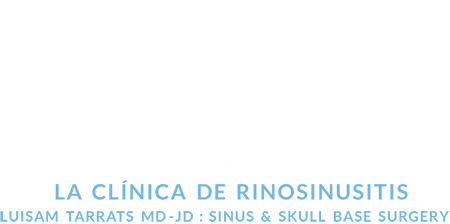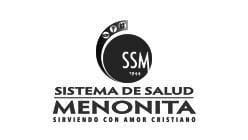LCR Nasal Irrigation
Nasal Irrigation – What You Need to Know
Cleaning the nose and sinuses with salt water, also known as saline, has been used for thousands of years. Washing the nasal passages with saline, is also called nasal – irrigation, nasal toilet, nasal douche and or nasal lavage. It is used to reduce nasal blockage and improve nasal drainage. Typically medications, like steroids and/or antibiotics are added to saline irrigations to increase their effectiveness.
Irrigations are usually recommended twice daily with cleansing of your irrigation device to prevent contamination. Keeping the irrigation device clean and free of contamination to prevent re-infection, is very important. There are many safe ways to rinse the nose and sinuses. Our recommendations are based upon many factors that include your comfort, cost effectiveness, and the nature of your disease.
What is the advantage of irrigating?
By washing away environmental irritants, inhalant allergens and superficial infection, irrigation helps heal the nasal passages. In addition, the irrigation is able to flow into the sinus cavities and deliver medication in a way that cannot be achieve by nasal sprays.
SALINE IRRIGATION
Saline Only – salt water solution, is also known as Sodium Chloride.
Normal Saline (0.9% Sodium Chloride) – salt water solution compatible with normal body fluids. (Isotonic)
- Pre-made salt soda packets commercially available (e.g. NeilMed®) for individual use.
- Homemade recipe 1 teaspoon of non-iodinated salt + ½ teaspoon of baking soda to 1 quart of distilled water. Store unused portions in the refrigerator and remove only the portion to be used the following day.
Usually distilled water only without salt may cause a burning sensation in your nose. However, every patient is different and you may need to experiment with the amount of saline in your irrigation to find the most comfortable level of saline concentration. (Less Salty = Hypotonic / More Salty = Hypertonic)
WARNING
DO NOT USE TAP WATER that is NOT STERILIZED – Tap water that is not filtered, treated, or processed in specific ways is not safe for use as a nasal rinse. Some tap water contains low levels of organisms, such as bacteria and protozoa, including amoebas, which may be safe to swallow because stomach acid kills them. But these “bugs” can stay alive in nasal passages and cause potentially serious infections. Improper use of Neti pots may have caused two deaths in 2011 in Louisiana from a rare brain infection that the state health department linked to tap water contaminated with an amoeba called Naegleria fowleri.
Patients on a severely salt-restricted diet for cardiac and/or renal conditions should use lower salt concentrations and avoid swallowing amounts of the nasal rinse which contains salt.
CLEANING THE IRRIGATION DEVICE
Prevent re-infection of your nose by cleaning your delivery system. Best to clean your device by rinsing after each use with soap and water. At least once per week rinse your nasal rinsing device with 1 teaspoon of household bleach in 16 ounces distilled water (approximately 1 part bleach to 100 water) allow to air dry the device. Then remove bleach residue by rinsing your device with distilled water.
SIDE EFFECTS
Delayed nasal drainage – Solution: change head position, irrigation pressure, or nebulize.
Nasal bleeding – Solution: Take an “irrigation holiday” for 3- 7 days to promote healing and then resume rinsing with greater care.
Nasal burning – Solution: change to more or less salty irrigation.
Ear fullness – Solution: change head position, irrigation pressure, or nebulize.
IRRIGATING WITH MEDICATIONS
Nasal saline that has a medication added to it is called a “compound” medication. Compounds are often only available only through special pharmacies called compounding pharmacies.
- Budesonide – a highly effective steroid with a very low systemic absorption.
- Antibiotics – gentamicin, mupirocin, ceftazidime, clindamycin
- Antifungal – amphotericin B
- Biofilmers brakers – baby shampoo, manuka honey
The medications themselves have been approved by the FDA. However, irrigation treatments are not typically FDA approved therefore not covered by most insurances. For example, BUDESONIDE is FDA approve to be use as a nasal spray (RHINOCORT®) and as an inhaler (PULMICORT®) but not for irrigation. Using these prescribed solutions is not experimental and is clinically found to be very effective.4










